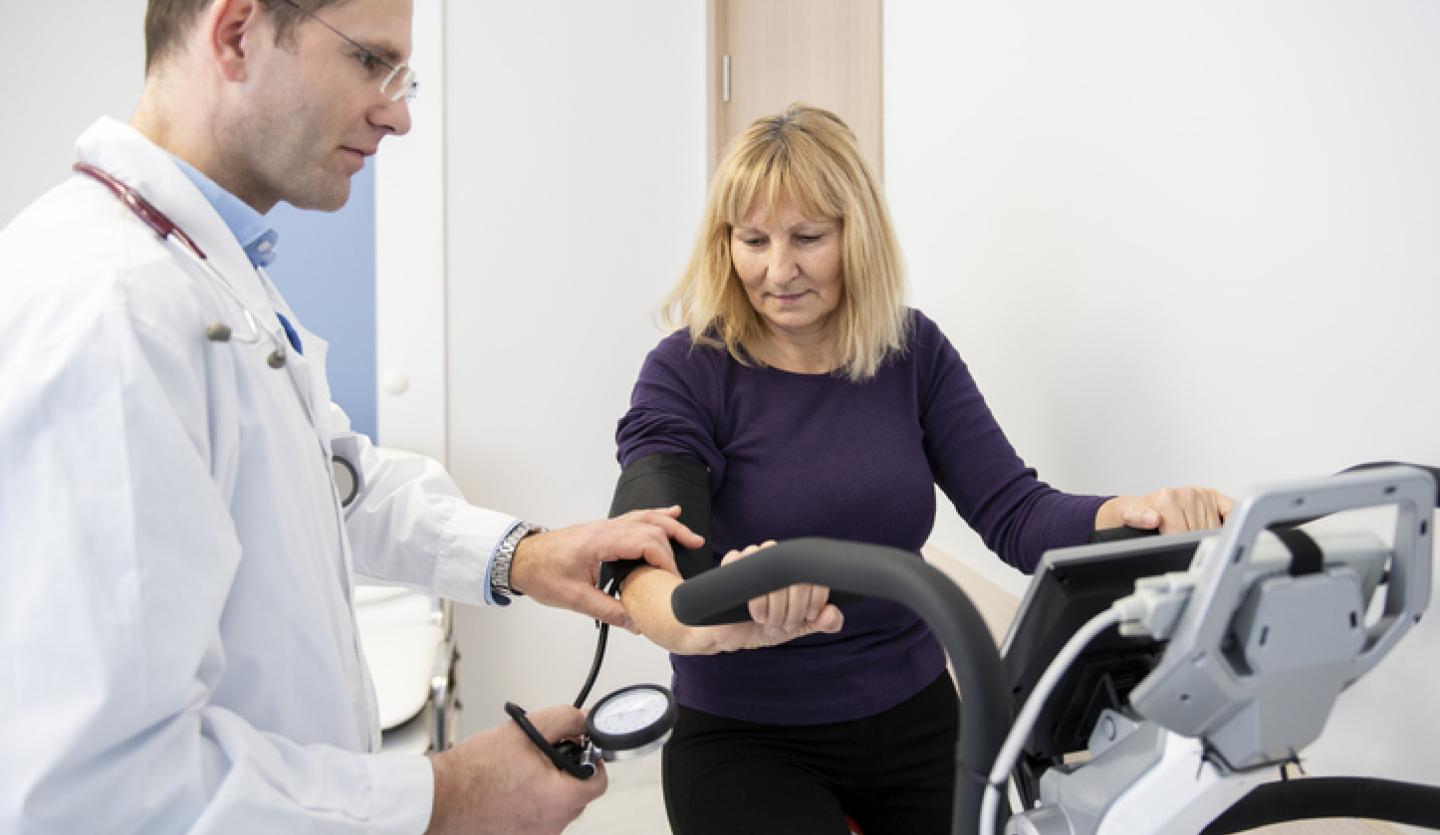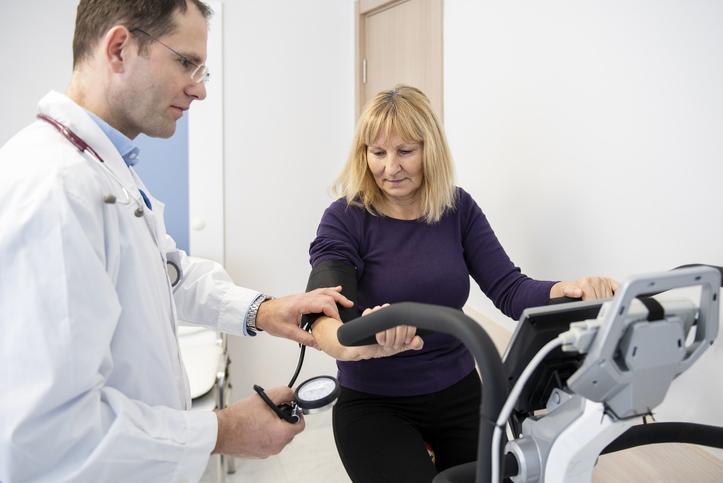“Many patients are unsure about what happens during a stress test and are often anxious about what to expect,” said Kathleen Stergiopoulos, MD, Catholic Health Cardiologist. “I reassure them that this is a routine test that helps evaluate their heart health and diagnose any cardiac conditions that need to be treated before further complications develop.”
Who needs a stress test?
“Stress tests are commonly used for patients who present with symptoms or have a personal or family history of cardiac issues,” said Dr. Stergiopoulos. “However, they are also helpful for patients who have other risk factors like diabetes, high blood pressure and high cholesterol. A stress test can help to determine their likelihood of developing heart disease or having a heart attack.”
Your cardiologist will order a stress test if you are experiencing symptoms that may indicate heart problems, including:
- Chest pain (angina)
- Arrhythmia (heart palpitations)
- Shortness of breath
- Dizziness and lightheadedness
A stress test is also recommended for those who:
- Are at high risk for heart disease because of family history
- Are at increased risk for heart disease because of diabetes
- Have an existing cardiac condition
- Want to start a new, more rigorous exercise routine safely
What heart problems can a stress test detect?
A stress test can help to diagnose:
- Heart valve disease
- Coronary artery disease
- Hypertrophic cardiomyopathy
What happens during a stress test?
An exercise stress test is the most common stress test. During this test:
- Your vitals, including your resting heart rate and blood pressure, will be taken.
- An EKG’s electrodes (small, sticky disks) will be placed on your chest and arms.
- You will walk on a treadmill or pedal a stationary bicycle at an easy speed and intensity level.
- You will continue to walk or pedal as the speed and intensity level gradually increase by the medical professional administering the test.
- You will maintain your target heart rate for 10 to 15 minutes so the EKG can record your heart activity.
- The test is completed after you return to an easy pace, cool down, and your heart rate returns to normal.
The medical professional administering the test will check in with you while exercising. Tell them if you are not feeling well, including dizziness, shortness of breath or chest pain. The test can be stopped at any time.
Are there other types of stress tests?
“For all stress tests, your heart rate, blood pressure, oxygen levels and electrical activity of your heart are being measured,” said Dr. Stergiopoulos. “Your doctor will determine the right stress test for you based on your health needs.”
Exercise stress echocardiogram
Similar to an exercise stress test, but in addition, an echocardiogram (ultrasound) is done before and after you reach peak exercise levels. The ultrasound shows how blood flows through your heart.
Nuclear stress test
Safe levels of a radioactive substance and a cardiac imaging scan assess blood flow to your heart muscle when resting before and after exercising.
A nuclear stress test helps a cardiologist determine if:
- Blockages that indicate coronary artery disease (CAD).
- Treatments like stents or bypass surgery are working as expected.
- If a heart is healthy enough for non-cardiac surgery or exercise.
Is a stress test safe?
“A stress test is safe, and a medical professional always supervises patients,” said Dr. Stergiopoulos. “If you are uncomfortable or feel unwell at any time, the test will be stopped.”
A stress test is not recommended for patients who have cardiac conditions, including severe aortic stenosis, uncontrolled arrhythmia, persistent chest pain and heart muscle inflammation.
It is also not suitable for patients who have recently survived a heart attack or aortic dissection.
How do I prepare for a stress test?
Contact your cardiologist’s office before your scheduled appointment for prep instructions, such as when to stop eating, drinking (including caffeinated beverages), and taking certain prescribed medications.
You will need to wear sneakers and loose, comfortable clothing.
How Heart-Healthy Are Your Habits?
What happens after my stress test?
Your cardiologist will review the results of your stress test with you.
If your results show your heart is healthy and functioning as expected, the next steps will depend upon your reason for the stress test. For example, a cardiac condition like atrial fibrillation may be ruled out, or you may be able to start a new exercise program.
“A stress test with normal results helps you and your cardiologist create a plan for maintaining optimal heart health, including healthy lifestyle habits and routine follow-up, especially if you are considered at high risk for cardiac disease,” said Dr. Stergiopoulos.
If your results are abnormal, your doctor will recommend additional testing.
“A stress test is an important step toward catching heart disease at its earliest stages as well as diagnosing a heart condition before it worsens,” said Dr. Stergiopoulos. “If you already have heart disease or a heart condition, a stress test will help you and your cardiologist review the best treatment methods.”
Explore Catholic Health cardiology services.







